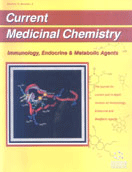Abstract
Precise control over cell cycle mechanics is crucial for maintenance of genomic integrity during the propagation of daughter cells. Knowledge of the functions and relationships between the proteins that regulate each phase of the cell cycle is central to understanding the cell cycle process. Recent studies of the polo-like kinase (Plk) family of serine/threonine kinases have shed new light onto the important functions of this group of highly conserved cell cycleregulating proteins, particularly during mitosis. Plk1, the founding member of the Plk family, is tightly linked from beginning to end with several key transitions in the progression of cells from G2 phase through completion of mitosis. Through analysis of data generated in model systems ranging from yeast to humans, we outline here the roles of Plk homologues in Cdc25C activation, centrosome maturation, APC/C activation, and cytokinesis. Furthermore, we discuss additional evidence supporting possible roles for Plks in initiation of DNA replication, in response to DNA damage or cellular stress, and in events outside cell cycle control. Due to their essential functions in these various cellular processes, misregulation of Plks is associated with carcinogenesis, and recent evidence has also indicated potential links with other human disease states as well. Therefore, a more complete understanding of Plk pathways and functions may provide novel avenues for therapeutic intervention in the future.
 1
1








